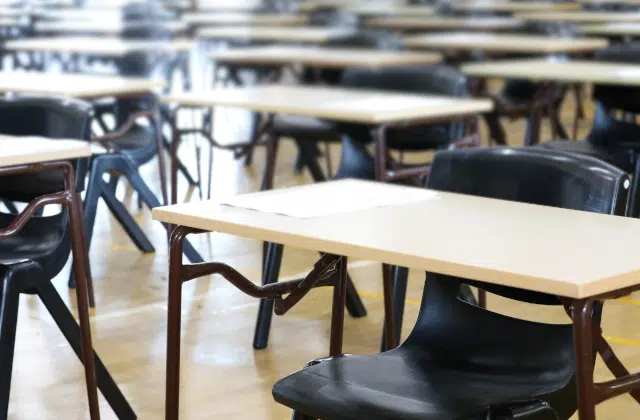
Government rolling out new subjects at schools in South Africa
The Department of Basic Education is making significant changes to the school curriculum to boost mathematics, science and technology among learners in the country – and is rolling out equipment and software to support new subjects including robotics and coding.
Responding in a written parliamentary Q&A this week, basic education minister Angie Motshekga provided an update on how schools are being supported in this strategy.
One of the key strategies being used, Motshekga said, is leveraging existing STEM programmes at schools.
The department launched the Dinaledi Schools project in 2005, which was subsequently merged with the Mathematics, Science and Technology Conditional Grant following a review by the DBE in 2015.
The strategic goal of the MST Grant is to increase the number of learners taking mathematics, science and technology subjects, improve the success rates in the subjects, and improve teachers’ capabilities, the department said.
“The grant’s purpose is to provide support and resources to schools, teachers and learners in line with the Curriculum Assessment Policy Statements (CAPS) for the improvement of mathematics, science and technology teaching and learning at selected public schools,” Motshekga said.
Notably, the department’s recent push into new subjects like robotics and coding and vocational training has become a significant part of the project.
According to Motshekga, 485 schools have so far been supplied with subject-specific computer hardware and related software for CAPS tech subjects, including coding and robotics pilot schools.
There have also been 1,256 laboratories supplied with apparatus and consumables for mathematics, science and technology subjects, including coding and robotics kits, she said.
In terms of student support, the department noted that 50,000 learners in the country registered to participate in mathematics, science and technology olympiads/fairs/expos and other events, including support through learner camps and additional learning, teaching and support material such as study guides.
There have also been 1,500 teachers attending specific structured training and orientation in subject content and teaching methodologies on CAPS for electrical, civil and mechanical technology, technical mathematics, and technical sciences.
Over 1,000 teachers and subject advisors have attended targeted and structured training in teaching methodologies and subject content either for mathematics, physical, life, natural and agricultural sciences, technology, computer applications technology, information technology, agricultural management and technology subjects, it said.
The department plans to fully implement coding and robotics as new schools subject for Grade R-3 and 7 students in the 2023 academic year.
A pilot curriculum for these subjects was initially introduced at some schools in the third term of the 2021 academic year, it said. It plans to expand these tech-focused subjects to other grades in subsequent years.
The coding and robotics pilot for Grades 4-6 and for Grades 8 was planned for 2022 and will be followed by a Grade 9 pilot in 2023. The full-scale implementation for Grades 4-6 and Grade 8 is planned for 2024, and Grade 9 in 2025, the department said.
Skill shortage
While the department is boosting its support and training for these new technical subjects, experts in the education field have warned that the country is facing a shortage of skilled teachers, mainly because a large percentage of the current workforce is nearing retirement age.
The Department of Basic Education has previously responded to claims of a skills crisis in teaching, saying that the number of new teaching graduates is increasing every year.
“The number of initial teacher education graduates has grown over the last 10 years from an output of about 7,973 in 2010 to 31,799 in 2020,” it said.
The 25,000 graduates mark was reached in 2017, it said, adding that the current enrolment trends point to the upward trajectory in graduation numbers.
The output of graduates is favoured towards the Senior/Further Education and Training Phases (SP/FET) – partly because the two qualification pathways allow for SP/FET to qualify through both the Bachelor of Education (BEd) and Post Graduate Certificate in Education (PGCE) while Foundation Phase (FP) is largely limited to BEd pathway, the department said.
The average teacher attrition rate over is 15,200 a year – largely due to retirement but also because of resignations, ill health and death.
The teacher supply in terms of quantity is reasonably adequate, the department said, at least from the analysis of the situation in public education.
Read: Here’s the planned school calendar for 2025 – and two big changes that should be in effect by then



